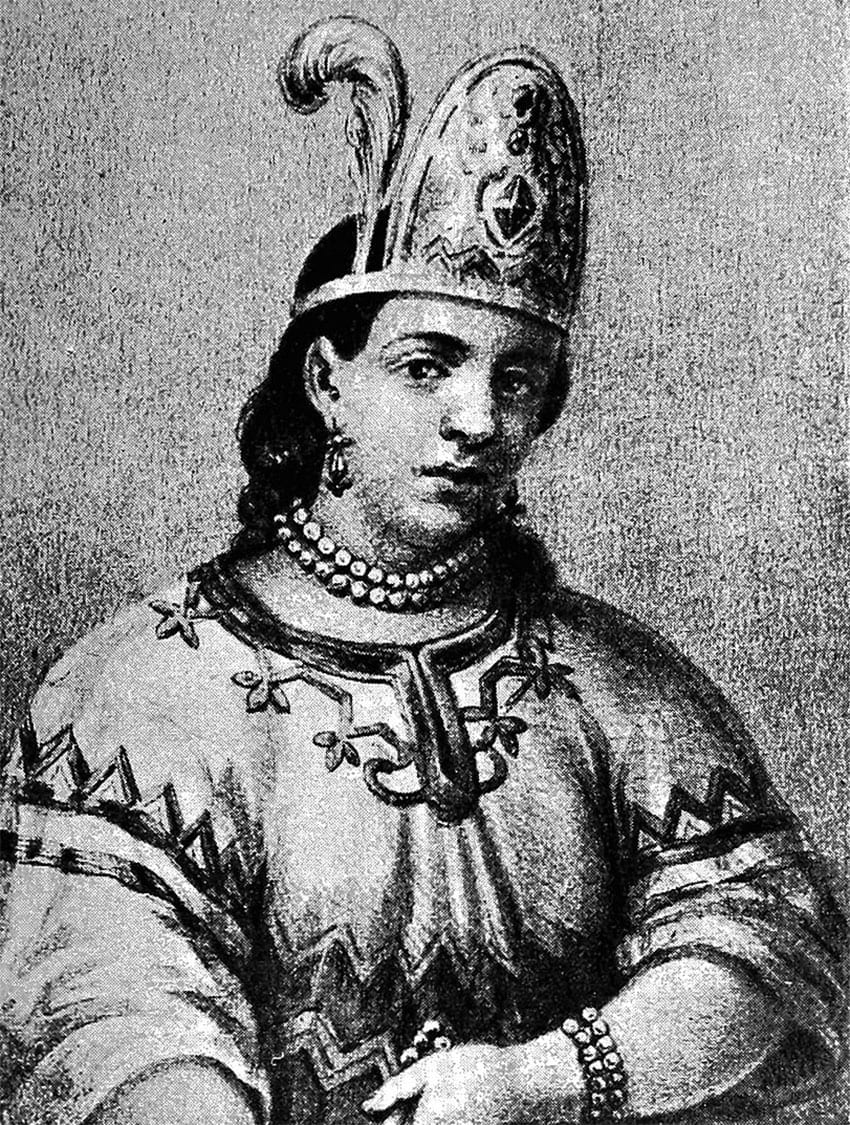La Malinche – the indigenous woman who was an interpreter, advisor and companion to Spanish conquistador Hernán Cortés – has been treated unfairly by history, and the role she played in Mexico’s past should be reevaluated with justice and greater historical knowledge, according to some experts.
A panel of specialists who appeared on a television program hosted by outspoken senator and thespian Jesusa Rodríguez defended La Malinche – also known as Malintzin, Malinalli and Doña Marina – as a “brave woman who was placed in an adverse situation and who, contrary to what has been said about her, cannot be described as a traitor,” the newspaper Reforma said in a report published Thursday.
Yelitza Ruiz, a lawyer and writer, said that Cortés’s young companion – an enslaved woman given to the Spanish by natives of Tabasco – has been subjected to hostility, slander and libel over the years, adding that other prominent women in Mexico’s history have received the same unfair treatment.
La Malinche, born circa 1500 near Mexico’s Gulf coast in modern day Veracruz state, has long been associated with treason and servility given that she helped the Spanish conquistadores in their quest to subjugate the land now known as Mexico. There is even a Mexican term derived from her name to refer to a person who favors people and things from a foreign culture over those from their own – malinchista.
Linguist and writer Yásnaya Aguilar told Thursday’s program that official versions of history have attempted to minimize the role Malintzin played in the events that ensued after Cortés and other Spaniards arrived in Mexico in 1519. Many historians have concluded that her linguistic and diplomatic skills were crucial to the Spaniards’ successful conquest.

“The memory that is kept of her in other spaces that are not spaces of official history allow us to see a complex woman, a woman who was in extraordinary circumstances and who had a fundamental role in what happened 500 years ago,” Aguilar said.
“The only way in which we can call her ‘traitor,’ as she has historically been called, is to think that the Mexico of today is Tenochtitlán [the capital of the Aztec empire upon which Mexico City was founded] and that’s not the case. The identification of contemporary Mexico with just one of the cities of that time, Tenochtitlán, is to oversimplify what happened,” Aguilar said.
The Spanish troops led by Cortés conquered Tenochtitlán in 1521. La Malinche, who spoke both Chontal Maya and Náhuatl, traveled to the city with the conquistadores and acted as an interpreter along the way. She would later give birth to Cortés child, Martín “el mestizo” (the mixed race one), although she married another Spaniard, Juan Jaramillo.
Historian Federico Navarrete said history has portrayed La Malinche as a lesser person than Cortés and not fully acknowledged her linguistic and other talents.
“We’ve built this whole romantic legend about Cortés and Malintzin but I believe that does nothing more than subordinate her to Cortés and convert him into a typical disagreeable male who leaves her behind and throws her in the trash – she’s turned into a disposable person and that’s not Malintzin at all if we look at her history,” he said.
With reports from Reforma
